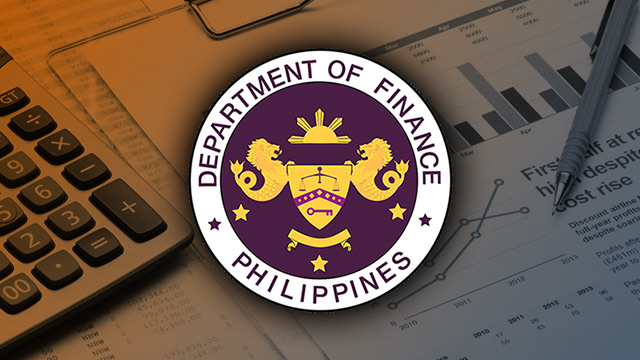SUMMARY
This is AI generated summarization, which may have errors. For context, always refer to the full article.

MANILA, Philippines – The passage of the fiscal incentives rationalization bill could generate an additional revenue of about P30 billion ($686.68 million*) annually, the Department of Finance (DOF) said Tuesday, August 19.
Finance Secretary Cesar Purisima said during the Development Budget Coordination Committee briefing on the proposed 2015 budget that his department would soon submit to Congress the revised version of the proposal to rationalize fiscal incentives.
“We’ve finally reached an agreement with the Department of Trade and Industry (DTI). We are submitting this week the revised version of the bill,” Purisima said.
The finance chief said that the passage of the measure could generate up to 2% of gross domestic product (GDP) over a period of time, or around 0.2% of GDP every year.
During the budget briefing, Senator Franklin Drilon also mentioned the need to review the income tax bracket structure in the country.
“While we look at the rationalization of fiscal incentives, we can also look at the tax bracket structure. We haven’t reviewed this since 1997,” Drilon said.
The Aquino administration wants fiscal incentives streamlined because these distort the tax structure of the Philippine economy and take away billions of pesos from government every year that could be used to improve the country’s fiscal position and social services.
In his first SONA in 2010, Aquino announced a package of economic reforms, including the rationalization of incentives.
“We will re-evaluate fiscal incentives given in the past. Now that we are tightening our purse strings, we need to identify those incentives that will remain and those that need to be done away with,” he stressed then.
He made similar statements in his 2011, 2012 and 2013 SONAs. In the last, he reiterated the need for such rationalization so “incentives we provide to businesses become even clearer and more accountable.”
Under Executive Order 226 or the Omnibus Investments Code of 1987 – one of the major laws governing fiscal incentives in the Philippines – incentives that can be granted to identified Board of Investments (BOI)-registered enterprises include tax exemptions, tax credits, and deductions from taxable income.
Investors have normally been given corporate income tax holidays for a period of up to 8 years. The DOF is looking at discontinuing such tax breaks for sectors like shipbuilding, iron and steel, and vehicle manufacturing. It said it would rather support investments in exporting industries, micro, small and medium enterprises, and research and development.
However, the measure is still pending before Congress. There are 4 bills with the House Committee on Ways and Means, all covering the rationalization, grant, and administration of fiscal incentives for investment growth.
Three fiscal incentives bills are also pending before the Senate Committee on Ways and Means.
Committee chairman Sonny Angara tweeted Tuesday that the debate between DOF and DTI over fiscal incentives rationalization has been going on for 16 years. The DOF is looking into revenue, while DTI is focusing on jobs and investments. (READ: Fiscal incentives bill: Is it really priority?)
Review tax bracket system
During the hearing, Drilon said that the Senate could also look into possible income tax cuts.
Purisima, on the other hand, said that he was open to reviewing the tax bracket system.
The Tax Management Association of the Philippines (TMAP) is pushing for the adjustment of income tax brackets and the reduction of income tax rates in the country.
The association of tax consultants and corporate tax practitioners filed with the Ways and Means Committees of both houses of Congress its position on the various proposed income tax bills.
TMAP said that it supports the adjustment of income tax brackets to consider the current Consumer Price Index.
“Such adjustment will increase disposable income, improve the living standards of our countrymen, and fuel the economy,” TMAP said.
The organization also supports the periodic automatic indexation of the income brackets by the DOF based on the criteria set by Congress.
TMAP recommends that the income tax brackets should provide for a 0% tax rate at the level of those defined as “marginal income earners,” which may also be aligned with the level of minimum wage earners.
Currently, even a P10,000 ($229.04) annual taxable income is taxed at 5%.
The World Bank called for the Philippine government to raise tax revenues by broadening the base, and making the tax system simpler and more efficient and equitable, while lowering certain tax rates. (READ: World Bank: Broaden base, simplify taxes to boost revenues) – Rappler.com
*($1 = P43.69)
Add a comment
How does this make you feel?
There are no comments yet. Add your comment to start the conversation.